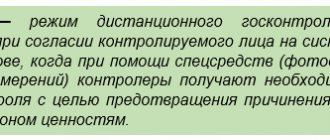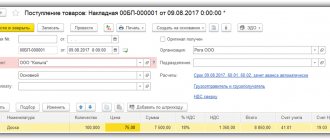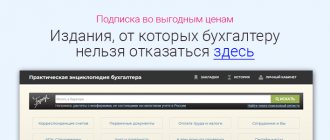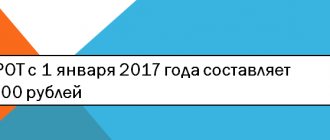Greetings, friends! From July 1, 2022, Rostrud inspections are carried out according to a new procedure. We invite everyone interested to our detailed review. As they say “praemonitus, praemunitus” or “forewarned, forearmed.” Go…
So, we are changing the procedure for conducting inspections of the State Labor Inspectorate (Rostrud). After the Law on State Control comes into force, new types of inspections will appear, inspections will become shorter, you will be able to find out in advance about almost all inspections, communicate with inspectors and complain about them online.
Why is everything changing?
From December 2016 to December 2025, Russia is gradually implementing a priority national program to reform control and supervisory activities.
Key goals of the program:
- reducing the administrative burden on business;
- improving the quality of administration of control and supervisory functions;
- reducing the number of deaths, illnesses and poisonings, and property damage.
The current year can safely be called a watershed between the old and new order of interaction with supervisory authorities. One law on inspections will be replaced by another.
| WAS | BECAME |
| Federal Law of December 26, 2008 No. 294-FZ “On the protection of the rights of legal entities and individual entrepreneurs in the exercise of state control (supervision) and municipal control” | Federal Law of July 31, 2020 No. 248-FZ “On State Control (Supervision) and Municipal Control in the Russian Federation” (hereinafter referred to as the Law on State Control) |
The document establishes a new course of control and supervisory activities, focused primarily on the prevention and prevention of violations of mandatory requirements.
The organization, conduct and registration of the results of inspections and other control (supervisory) activities not completed before 07/01/2021 are carried out in accordance with the provisions of regulatory legal acts in force on the date of the start of these inspections and activities (Part 8 of Article 98 of the Law on State Control) . Consequently, such checks are carried out in accordance with the requirements established by Federal Law No. 294-FZ dated December 26, 2008.
Let's figure out how our work will change in terms of interaction with GIT inspectors.
Documents that are of interest to inspectors
- Employment contracts with employees, their work books, applications and their other documents and issued certificates.
- Staffing schedule, personnel orders, time logs, vacation schedules.
- Sick leave certificates, medical examination data.
- All accounting documents for any payments to employees.
- Internal regulations, regulations on certifications, data protection, information and trade secrets.
- Documents on labor protection.
- Documentary evidence that employees are familiar with all documents of the organization related to them.
When carrying out control activities, GIT inspectors use checklists - they can be studied in their entirety in the article “Prepare for an inspection using GIT checklists on personnel issues”
What changes have occurred?
Different inspectors will not check compliance with the same requirements
The State Control Law excludes verification of compliance with the same mandatory requirements by several regulatory authorities in relation to one object of control.
Inspections of Rostrud and other departments have become shorter
The Law on State Control has changed the period for conducting documentary and on-site inspections. From July 1, 2022, it cannot exceed 10 working days. For comparison, until July 1, a maximum of 20 working days was set.
As before, the period for on-site inspections of small enterprises is no more than 50 hours, micro-enterprises - no more than 15 hours, and if the inspection of a micro-enterprise is carried out on the basis of an inspection program - no more than 40 hours (clause 7 of article 72, clause 7 of art. 73 of the Law on State Control).
If a company has separate divisions in several constituent entities of the Russian Federation, the on-site inspection period is set for each of them separately.
Waiting periods for receipt of documents when calculating the duration of a documentary check. This period from the moment when the inspector sent you a request to submit the necessary documents until the moment you submitted them is not taken into account when calculating the duration of the inspection and between the time the inspector informed you about an error and contradictions in the documents or about the discrepancy between the information in them and the information that is available from the State Tax Inspectorate, and demanded written explanations before the submission of these explanations (Part 7 of Article 72 of the Law on State Control).
The time that the inspector spent preparing the inspection and documenting its results is also not included in the duration of the on-site scheduled inspection (clause 62 of the Regulations, approved by order of Rostrud dated June 13, 2019 No. 160).
The new deadlines apply for scheduled inspections that will take place after June 30, 2022 (clause 4 of Government Resolution No. 1969 of November 30, 2020).
If the inspector exceeds the inspection period and grossly violates the inspection procedure, appeal the results of the Rostrud inspection. Now this can only be done through your personal account on the State Services website.
How to find out when there will be a scheduled GIT inspection in 2020?
How to find out when the labor inspectorate will check? You can do this in 2 ways:
- Firstly, labor inspectorates in the constituent entities of the Russian Federation are required to publish plans on the official website on the Internet (Part 5, Article 9 of Law 294-FZ). Typically the plan is posted as an Excel file. Among other information, the month the inspection began is indicated. The placement period is until December 1 of the year preceding the year of inspection (clause 40 of the Regulations).
- Secondly, before December 31 of each year, information about inspections for the next year is included in a single consolidated plan for inspections of business entities (Part 7, Article 9 of Law 294-FZ).
On the website of the Prosecutor General's Office of the Russian Federation there is a service that allows you to find out whether there are inspections planned for an enterprise (and not only from the State Tax Inspectorate). To do this, it is enough to enter at least the TIN of the organization or entrepreneur. The result will show:
- inspection bodies;
- subject of inspection;
- month the inspection began;
- period of verification activities.
It is impossible to know the specific start date of the inspection in advance. However, according to Part 12 of Art. 9 of Law 294-FZ, the enterprise is notified of the start of control measures no later than 3 working days before the start by sending a copy of the relevant order.
New forms of control
The Law on State Control proposes both the previously known ones - on-site and documentary inspection, test purchase, raid inspection, and new ones - on-site inspection, monitoring purchase, random control, inspection visit, etc.
The Law on State Control contains an arsenal of 9 types of CNM control measures: 7 of them involve interaction between the state inspector and the controlled person, 2 take place without interaction - see the table.
| Type KNM | Definition |
| KNM that involve interaction with a controlled person | |
| Test purchase | CNM, during which the inspector takes actions to create a situation for the implementation of a transaction in order to assess compliance with mandatory requirements when selling products (goods), performing work, providing services to consumers |
| Monitoring purchase | CNM, during which the inspector takes actions to create a situation for the implementation of a transaction for the purpose of subsequently sending products (goods), results of work performed, services provided for testing, examination, as well as conducting research on products (goods), results of work performed, services provided for the subject of their compliance with mandatory safety or quality requirements |
| Selective control | QNM, carried out at the place of storage and (or) sale of products (goods) by controlled persons, which is the sampling of samples of products (goods) in order to confirm their compliance with mandatory safety and (or) quality requirements |
| Inspection visit | CNM, carried out through interaction with a specific controlled person or owner (user) of a production facility |
| Raid inspection | CNM, conducted for the purpose of assessing compliance with mandatory requirements for the use (operation) of control objects in a certain territory that are owned or operated by several persons |
| Documentary verification | CNM, which is carried out at the location of the supervisory authority and the subject of which is exclusively the information contained in the documents of controlled persons, establishing their organizational and legal form, rights and obligations, as well as documents used in the implementation of their activities and related to their fulfillment of mandatory requirements and decisions of the supervisory authority |
| On-site inspection | Comprehensive QM conducted through interaction with a specific supervised person owning or using production facilities to assess that person's compliance with mandatory requirements, as well as assessing compliance with decisions of the supervisory authority |
| CNM, which are carried out without interaction with the controlled person | |
| Monitoring compliance with mandatory requirements | Analysis of data on objects of control available to the supervisory authority, incl. data that arrives during interdepartmental information interaction is provided by controlled persons as part of the implementation of mandatory requirements, as well as data contained in state and municipal information systems |
| On-site examination | A surveillance exercise carried out for the purpose of visually assessing the compliance of a controlled person with mandatory requirements |
New forms of conducting CNM have been introduced:
- 1. Inspection visit: examination, questioning, obtaining explanations, instrumental examination and requesting documents.
From July 1, regulatory authorities can replace scheduled inspections with inspection visits that last no more than 1 working day. This form of verification does not require advance notice to the employer: the visits will be sudden!
The supervisory authority can make such a decision at least 20 days before the scheduled date. The controlled organization must be notified a maximum of 10 days after the decision.
- 2. Monitoring purchase of goods or ordering of works/services for testing, examination, research to verify compliance with safety and quality requirements.
- 3. Sampling control.
All new control methods require lower costs for controlled persons compared to traditional inspections. Thus, observation and on-site inspection are carried out without interaction with controlled persons, and an inspection visit can be carried out using means of remote interaction, including through audio or video communication.
For each individual CNM, a set of actions of the supervisory authority is strictly defined, indicating the specific content, duration, depth of control, frequency and number of planned activities.
For example, when conducting an on-site inspection, an inspector can perform only one action - inspection, but when conducting an inspection, he can use almost the entire set of allowed actions.
For each type of supervision, the government develops a regulation regulating it, which is a by-law of the Law on State Control. Thus, with regard to inspections of Rostrud, on July 23, 2021, Decree of the Government of the Russian Federation dated July 21, 2021 No. 1230 “On approval of the Regulations on federal state control (supervision) over compliance with labor legislation and other regulatory legal acts containing labor law norms” was published. It will be valid until 06/23/2023.
At the same time, the Regulations on federal state supervision over compliance with labor legislation and other regulatory legal acts containing labor law norms, approved by Decree of the Government of the Russian Federation dated September 1, 2012 No. 875, were declared invalid.
But the Administrative Regulations for the implementation by the Federal Service for Labor and Employment of federal state supervision over compliance with labor legislation and other regulatory legal acts containing labor law norms, approved by Order of Rostrud dated June 13, 2019 No. 160, are still in force.
On-site inspection of Rostrud and other departments will be carried out only in exceptional cases
According to the new standards, an on-site inspection can be carried out only if the controller does not have the ability to:
- verify the completeness and accuracy of the information contained in the documents received from the controlled person;
- assess the compliance of activities and objects of control with mandatory requirements in other ways.
All checks are now recorded online
All actions of inspectors during inspections will be reflected in special information resources.
The system will help track the legality of supervisory measures, as well as gain prompt access to all necessary documents and information (Article 17 of the Law on State Control):
- a unified register of types of federal state control (supervision), regional state control (supervision), municipal control (hereinafter also referred to as a unified register of types of control), which includes all control bodies and the types of control that they exercise;
- a unified register of control (supervisory) activities (in its current form it is a register of inspections);
- information system (subsystem of the state information system) of pre-trial appeal (hereinafter referred to as the pre-trial appeal subsystem), in which we participate, appealing inspections through State Services (electronic government);
- register of conclusions on confirmation of compliance with mandatory requirements (hereinafter referred to as the register of conclusions on compliance);
- information systems of control (supervisory) bodies.
You can find out about the appointment of inspections online and monitor their progress
Information about scheduled inspections by Rostrud and other departments will now be reflected in the personal account of a legal entity/individual entrepreneur.
If you have so far ignored opening a personal account for an organization or individual entrepreneur on State Services, know that without it you will not be able to protect your interests in court, since filing a claim with the inspectors is possible only after appealing their actions and decisions in a pre-trial manner through your personal account.
The inspection plan will continue to operate until the end of 2022, and in the future it will be replaced by the Unified Register of Control (Supervisory) Activities (hereinafter referred to as the Unified Register). The Unified Register will include information about preventive and CNM that inspectors carry out in relation to the company, about the coordination of activities with the prosecutor’s office, the actions and decisions of the inspector based on the results of inspection activities (Article 19 of the Law on State Control, Government Decree No. 604 dated April 16, 2021).
When carrying out federal state sanitary and epidemiological control (supervision), the controlled person carrying out activities related to the circulation of food products, materials and products and (or) the provision of public catering services is not notified of an unscheduled on-site inspection (Article 44, paragraph 4 of the Federal Law of March 30, 1999 No. 52-FZ).
The law prohibits conducting an inspection that is not included in the Unified Register. Otherwise, the results of the event can be declared invalid through the pre-trial appeal procedure at the State Duma (Part 4 of Article 19, 91 of the Law on State Control).
All documents related to verification activities will be generated automatically and provided with a QR code. After the camera recognizes a regular smartphone, it will take you to a registry page with up-to-date information about the inspection of Rostrud or another department.
Read in PRO+ a detailed analysis: New procedure for training in labor protection: instructions for use + set of documents
There will be more risk categories and the frequency of inspections for them will change.
The choice of preventive and control measures, their content, volume, intensity and other parameters will now depend on an assessment of the risks of harm to legally protected values.
This means that the higher the risk, the more often and more thoroughly CNM will be carried out (Article 23 of the Law on State Control). Thus, control (supervision) authorities will redistribute their efforts to areas where there is the greatest need.
End of check
Before the end of the period (usually the last days), the inspecting labor inspector draws up:
- Inspection report in two copies (Order of the Ministry of Economic Development No. 141). It is given to you against your signature and if you disagree with something, you can indicate your comments. If it is not possible to come to the State Tax Inspectorate for the act, it will be sent to you by mail with acknowledgment of receipt. It should also be noted that the inspection report can be sent by email, subject to your consent.
- A completed checklist (checklist) based on the results of the inspection. If everything went smoothly for you, you will not receive such a document. I recommend carefully checking the compliance of the specified points with the realities of your organization; the inspector is also a person and can make mistakes.
- An order to eliminate identified violations, indicating the time frame for their elimination.
- A protocol on an administrative offense, along with it, a resolution on imposing an administrative penalty is being prepared, which will indicate the amount of the fine. In addition to a legal entity, officials can also be held liable.
Even in my practice, I often saw that representatives of the organization did not agree with the comments made and wanted to appeal them. Now you can do this, for example:
- Write an objection to the State Tax Inspectorate in case of disagreement with the facts, conclusions, proposals set out in the inspection report or disagreement with the issued order to eliminate the identified violations. This objection must be sent in the form of electronic documents (electronic package) within 15 days from the date of receipt of the inspection report. It is imperative to attach documents confirming its validity to the objection, or submit certified copies of them to the State Tax Inspectorate within the agreed period (Part 12 of Article 16 No. 294-FZ).
- You can go to court with a complaint against the inspection report of the labor inspectorate. You must apply within 10 calendar days from the date of receipt of the list of violations (Part 2 of Article 357 of the Labor Code of the Russian Federation).
If you agree with all the comments written down, prepare measures to implement the instructions, indicate deadlines and responsible persons, sign them by the head of the organization, and then send them to the inspector.
Get started with the elimination and don’t forget to pay the fine specified in the protocol
Before the expiration of the prescription, a report on the activities is prepared and also sent to the State Tax Inspectorate. If it was necessary to eliminate gaps in the documentation, then copies are attached, for example, if it was necessary to conduct a special assessment, in this case a certified copy of the summary statement will confirm the fulfillment of the order.
If there were comments that need to be verified in fact as being implemented, a labor inspector should come check.
It happens that the deadlines set by the inspector are too short to complete (well, it’s simply impossible to meet them!), in this case you need to prepare a petition to the State Tax Inspectorate for an increase, indicating a justified reason, for example, lack of funding or the need for a tender purchase, which delays the procedure.
The inspectorate will consider your request and will accommodate you halfway if the reason is real and justified. The main thing is not to delay the application and do not leave it until the last days.
Remember that the end of the inspection does not mean that you can pay a fine and breathe out; quite often after it there is only more work: either eliminating comments, or a dispute in court with the labor inspectorate; in any case, there is never enough work for an occupational safety specialist
Risk categories
- Low risk - not carried out.
- Moderate risk - at least 1 KNM in 6 years and no more than 1 KNM in 3 years (previously - at least 1 time in 6 years).
- Average risk – at least 1 CNM in 6 years and no more than 1 CNM in 3 years (previously – at least once every 5 years).
- Significant risk - at least 1 KNM in 4 years and no more than 1 KNM in 2 years (previously - 1 time in 3 years).
- High risk - at least 1 KNM in 4 years and no more than 1 KNM in 2 years (previously - 1 time in 2 years).
- Extremely high risk (new category) – at least 1 KNM, but not more than 2 KNM in 1 year.
The types and frequency of scheduled inspections for each risk category are also indicated in the Regulations on the type of control of the relevant control (supervisory) body (clause 5, part 5, article 3, part 1, article 25 of the Law on State Control). For labor safety inspections it remains the same. Since today there is no new provision yet, the frequency of inspections will remain the same, which does not contradict the Law on State Control.
Principles for forming a GIT inspection plan
An exhaustive list of grounds for conducting scheduled inspections by the labor inspectorate is established in Part 8 of Art. 9 of Law 294-FZ. They are the expiration of the above deadlines from the date:
- Registration of an organization or entrepreneur.
- The end of the previous scheduled inspection.
- The enterprise begins to conduct certain types of business activities.
In the event of unfounded inspections, the following consequences simultaneously occur:
- their results are invalid;
- guilty officials are subject to administrative liability under Art. 19.6.1 Code of Administrative Offenses of the Russian Federation.
Let us note that the presence of grounds for a scheduled inspection does not mean that the company will certainly be included in the plan. And if it is not included in the approved plan, then its inclusion there in the future is not allowed. The exhaustive grounds for adjusting the plan are contained in clause 41 of the Regulations. They only concern exclusions from the plan and changes in information about those being audited.
How to reduce the number of Rostrud inspections
The new law has provided mechanisms by which it is possible to reduce the number of inspections or even receive carte blanche from auditors in the form of exemption from scheduled inspections.
In certain areas of activity, the CNM of supervisory authorities will be replaced by alternative institutions:
- independent assessment of compliance with mandatory requirements;
- liability Insurance;
- participation in self-regulatory organizations.
For example, a company may be exempt from conducting scheduled inspections if it enters into an insurance agreement for the risks of harm (damage) (clause 9 of Article 25 of the Law on State Control) or becomes a member of an SRO that has an agreement with the supervisory authority that inspections the activities of members of the organization are equated to scheduled inspections of the supervisory body.
Monitoring instead of scheduled inspections of Rostrud
Another way to reduce the intensity of control and supervisory activities that the law proposes is to monitor information about the object of control under the terms of an agreement between the controlled person and the supervisory authority.
Monitoring involves automatic photo and video shooting at the company’s facility, during which the collected materials are sent to the regulatory authority. And the person under such control will be exempt from scheduled inspections (Article 96 of the Law on State Control).
Instruction 6: how can an employer check himself before the arrival of a GIT inspector?
Each employer can conduct a self-inspection before the arrival of a labor inspector.
And again, modern technologies come to the rescue ─ on the Rostrud website you will find a free service “Electronic Inspector”, with the help of which any employer can find out whether there are violations of labor laws at his enterprise:
The service includes 200 self-test sheets, after filling which the system will give you a conclusion about the presence or absence of violations.
The system allows, based on data on specific employees, to test the correctness of the employment process, the provision of paid annual leave, assess the legality and compliance by the employer with the procedure for imposing financial liability on the employee, etc.
More than 500,000 employers have already used the service, and the violations they identified helped them protect themselves from fines totaling RUB 10.8 billion.
Here are the most frequently detected violations:
| No. _ _ _ | Type of violation | Link to Labor Code of the Russian Federation |
| 1 | Employees are not familiar with internal local regulations related to their work activities | Part 2 Art. 22, part 3 art. 68 |
| 2 | The internal labor regulations and employment contracts do not indicate the days of payment of wages | part 6 art. 136 |
| 3 | The employer has not developed a procedure for indexing wages | Art. 134 |
| 4 | Employment contracts do not contain the necessary information and conditions (place of work, conditions of remuneration, etc.) | Part 1 and Art. 57 |
| 5 | The employment contract incorrectly states the place of work of an employee of a separate division | para. 2 hours 2 tbsp. 57 |
| 6 | The employment contract does not indicate the employee's salary | Art. 57 |
| 7 | The vacation schedule was approved later than 2 weeks before the new calendar year for which it was drawn up | Part 1 Art. 123 |
| 8 | The employee's vacation is divided into parts, each of which is less than 14 days | Art. 125 |
| 9 | A pregnant employee is subject to a probationary period during employment. | Part 4 Art. 70 |
| 10 | A minor employee is entitled to an annual paid leave of 28 calendar days. | Art. 267 |
| 11 | Employees are not notified in a timely manner about the start of vacation | Part 3 Art. 123 |
| 12 | Employees' working hours are not recorded in timesheets | Art. 91 |
| 13 | A civil law contract was concluded instead of an employment contract | Art. 57 |
| 14 | The form of the pay slip has not been approved | Part 1 Art. 136 |
| 15 | There are no employee signatures on personal cards and employment contracts | Art. 67 |
Who will be tested in 2022?
By Decree No. 1969 of November 30, 2020, the government extended the moratorium on scheduled inspections in 2022, but only for small enterprises and not for everyone. The moratorium does not apply to:
- economic agents that are under constant state control; enterprises with hazard classes 1 and 2;
- companies from the high and extremely high risk categories, as well as those operating such facilities;
- enterprises with activities from the list to Law No. 294-FZ of December 26, 2008 (education, healthcare, etc.);
- fine officers for whom the decisions on punishment under the Code of Administrative Offenses for gross violations have entered into force;
- enterprises whose licenses have been suspended or revoked.
In the last two cases, another condition applies - the inspection, based on the results of which the penalties were imposed, took place less than 3 years ago.
However, there is an exception here, if the emergency services belong to the high-risk category, then an inspection by the labor inspectorate will still come.
Therefore, scheduled inspections are expected by small, medium and large enterprises, as well as non-profit organizations with up to 200 employees, where there is a high risk of fires, accidents, environmental damage and violations of sanitary and epidemiological legislation.
In addition, it is clarified that the ban applies only to scheduled inspections and does not apply to administrative investigations that are carried out under Article 28.7 of the Code of Administrative Offences.
The moratorium does not apply to unscheduled inspections - if the State Tax Inspectorate receives a signal of a violation, they will initiate an unscheduled inspection at any enterprise or individual entrepreneur.
To start an investigation, only information pointing to it is enough: for example, a request from an employee.
Moreover, if a government agency perceives a threat to people’s life or health, inspectors will come without warning. In other cases, you will be notified 1 day in advance.
Therefore, within the limits of the restrictions, inspectors used administrative investigations without interaction with employers.
For example: Rostrud has the right to conduct events without interaction to check how the organization conducted a special assessment of working conditions (SOUT) and formalized its results (Order of the Ministry of Labor dated January 16, 2019 No. 13n).
The legislative framework
Employers are required to comply with labor law standards. The state checks from time to time how this duty is fulfilled. In practice, if a company of any form of ownership has at least one person on its staff, the labor inspectorate will come there: planned, and sometimes unscheduled.
What do labor inspectors check? The main purpose of inspections is to monitor compliance by entrepreneurs and officials with labor legislation. The procedure and standards for this control are regulated at the legislative level. In particular, articles from Chapter 57 of the Labor Code are devoted to this.
| Articles about inspections |
|
Legislative acts that control the implementation of labor law standards:
- Federal Law No. 294 of December 26, 2008 is aimed at protecting legal entities and individual entrepreneurs during inspections. It regulates the state supervision procedure, sets deadlines, and contains other important information for entrepreneurs.
- Government Decree No. 875 of September 1, 2012 approves the Regulations on state supervision in the field of labor law.
| Valentina Mitrofanova will tell you what's new in labor legislation this week. Watch the new episode of Personnel Review. |
What will Rostrud and other departments check in 2022?
During an inspection, inspectors can only request a certain list of documents: they do not have the right to request documents and information that are not related to the subject of the inspection.
Scheduled checks
Scheduled inspections will be carried out on the basis of checklists, which will be automatically generated from the list of regulations and their parts contained in the register of mandatory requirements (Article 15 of the Decree of the Government of the Russian Federation dated 02/06/2021 No. 128 No. On approval of the Rules for the formation, maintenance and updating of the register of mandatory requirements No.). Inspectors have no right to ask any questions other than those indicated in the checklists.
Unscheduled inspections
Supervisory authorities initiate unscheduled inspections if:
- they have information about causing harm or achieving risk criteria for violating mandatory requirements;
- there is an order from the President or the Government to carry out control (supervisory) measures in relation to specific controlled persons;
- required by the prosecutor after filing a complaint with him;
- expiration of the deadline for fulfilling the order (clauses 1, 3 – 6, part 1, article 57 of the Law on State Control, part 1, article 66 of the Federal Law of July 31, 2020 No. 248-FZ).
Currently, risk indicators for violation of mandatory requirements have not been developed by federal executive authorities; therefore, provisions on the use of state control (supervision) bodies to determine the need for unscheduled inspections and other measures to control risk indicators of violation of mandatory requirements cannot be applied (clause 14 letter of Rosprirodnadzor dated January 11, 2017 No. AS-09-01-36/143).
What the GIT checks: procedure
Schematically, the regulations for conducting supervisory activities can be reflected as follows:
Alert . A warning about a scheduled inspection must be received by the enterprise no less than 3 days before the inspector’s visit. During this time, you have the right to request details of the upcoming inspection: which body is sending the commission, the labor inspectorate inspection regulations, for what period they are checking, in what order and what measures are envisaged. If the inspection is unscheduled, then the law does not oblige the State Inspectorate to notify. The inspection can begin at the same moment when the inspector arrives at the company. But in practice, they are often notified 24 hours in advance.
Verification of documents . Starting from 2022, the verification takes place in the format of a questionnaire. The powers and rights of inspectors have not changed, but the regulations for their actions have become more structured: the results of control are entered into checklists formed by topic (for example, in the topic “Labor contract”, the labor inspectorate checks the existence of contracts, the correctness of their preparation, and the timeliness of signing).
The Institute of Professional Personnel Management has recorded several videos on working with checklists. Watch the introduction and other videos.
We will talk in detail about what documents the labor inspectorate checks below.
Drawing up an act with the results . Sometimes it is compiled at the enterprise, but more often than not you need to go to the GIT for it.
Drawing up an order . This point is carried out if there are violations. The document contains a description of the violation, the date of its commission, a link to the legislative act, and a deadline for elimination. At the end of the period there will be another check.
| Important! The first action of the inspector at the inspection site is to present the order to carry out the control and his identification. Only the person indicated in the administrative document has the right to inspect. Remember: even if violations are identified, the economic agent has a number of rights. These include appealing the results of the inspection on the basis of violation of regulations. To effectively use this right, you must carefully study the regulations and carefully monitor the progress of control. |
What does the labor inspectorate check during a routine inspection?
There is no fixed list of documents that are required by the inspectorate. The list of documents that you must present at the request of the inspector includes:
- Employment contracts.
- Personal files and personal cards.
- Work books and registers of their accounting.
- Time sheet.
- Work schedule and vacation schedule.
- Paysheets and accounting statements.
- PVTR and some other local acts.
- Registers of familiarization with LNA, personnel and accounting documents.
What does the labor inspectorate check during an unscheduled inspection?
Unscheduled inspections are thematic in nature. That is, the State Tax Inspectorate receives a signal about a specific violation and conducts an investigation on this topic. For example, an employee complained that the employer did not make a payment on the last working day or did not return the work book.
If the inspection is thematic, the inspector is limited to the scope of the request. That is, in the example above, he does not have the right to check compliance with labor safety standards or request documents related to other employees.
A special case is what the labor inspectorate checks when there is a complaint from an employee who wishes his name to remain unknown to the employer. This right is given to workers by Article 358 of the Labor Code of the Russian Federation. In this situation, the inspector, in order to keep the applicant incognito before the company, may request the documents of several employees.
| Advice The desire to keep your name secret from your employer is legal. But anonymous appeals to the State Tax Inspectorate are excluded. An employee who wants to protect his rights through the labor inspectorate is required to draw up an application indicating his full name, address and contact information. |
How to check the registration of a complaint with the labor inspectorate? The employer cannot do this: he only has access to the order presented by the inspector. But the applicant can track the status of his application through his personal account on the website onlineinspetskiya.rf.
Grounds for canceling inspection results
There will be more reasons to cancel the results of inspections by Rostrud and other departments
The results of a CNM, which the inspector carried out in gross violation, can be declared invalid. The inspector’s decision will be canceled (Article 91 of the Law on State Control) if he:
- carried out an inspection without legal grounds;
- did not coordinate it with the prosecutor's office when it was necessary;
- failed to provide notice of the event when required;
- violated the frequency of a planned event;
- held an event that is not in the plan or in the Unified Register;
- made a decision based on the results of checking compliance with regulatory provisions;
- legal acts and other documents that are not mandatory requirements;
- attracted to the inspection persons who cannot participate in it;
- violated the deadlines for the event;
- committed during the event actions not provided for by law for this type of event;
- demanded documents, information, product samples not related to the subject of inspection or seized the originals of such documents;
- did not inform about the results of the event.
If the results of a control and supervisory event are declared invalid on these grounds, the State Tax Inspectorate will be able to re-inspect the company unscheduled only in agreement with the prosecutor’s office, regardless of the grounds and type of action.
On one or more of 12 grounds (previously there were 9), you can appeal the results of the State Services inspection and have them reset.
What documents may the State Tax Inspectorate require?
Representatives of the labor inspectorate have the right to demand from the employer any documents related to the subject of the inspection. Among them:
- Charter of the organization, certificates of registration and registration with the tax office, regulations on the branch, etc.
- Personnel documents: labor and collective agreements, work books, orders, staffing tables, time sheets, etc.
- Local regulations: on wages, on personal data, business trips, internal labor regulations, on labor protection, etc.
- Accounting documents relating to the calculation and payment of wages: pay slips, personal accounts, pay slips, etc.
- Logs of safety briefings, accident records, etc.
IMPORTANT! Inspectors do not have the right to request information that they can receive as part of interdepartmental interaction: information from the Unified State Register of Legal Entities, Unified State Register of Individual Entrepreneurs, Unified State Register of Entities, data on the status of settlements for insurance premiums, etc. (clause 8 of Article 15 of Law No. 294-FZ, p. 51.1 of the Regulations).
The law does not establish restrictions on the period for which the inspection is carried out. However, it is possible that the storage period for the documents has expired and they have been destroyed. Then the employer may not provide these documents by sending written explanations about the reasons for their absence. Please note that the storage periods for personnel documents and other documents related to labor relations are established in the list approved. by order of Rosarkhiv dated December 20, 2019 No. 236. For details, see here.
Types of preventive measures
Prevention made a priority
The priority of preventive measures in relation to supervisory measures is enshrined in law. There are 7 types of preventive measures.
| Event | Characteristic |
| Measures to encourage conscientiousness | Accepted as a motivation for compliance with mandatory requirements in the form of non-material incentives for bona fide controlled persons |
| Consulting | Carried out by an official of the supervisory authority upon requests from controlled persons in the form of clarifications on issues related to the organization and implementation of state supervision. Counseling can be carried out by telephone, via video conferencing, in person, or during a preventive or surveillance event. |
| Self-examination | Self-assessment, which is carried out for the purpose of voluntarily determining by controlled persons the level of their compliance with mandatory requirements |
| Preventative visit | Conducted by an inspector in the form of a preventive conversation at the place of activity of the controlled person or through the use of video conferencing |
One of the preventive measures is self-examination. By law, a company can undergo an automated inspection using one of the methods indicated on the official website of the control body. If, based on the results of the self-examination, the company receives a high rating, it has the right to accept a declaration of compliance with mandatory requirements, the validity period of which is from 1 to 3 years (Article 51 of the Law on State Control).
The law does not say what preferences the declaration will provide. They will be determined additionally.
It is possible that during the period the declaration is valid, the company will not be subject to scheduled inspections.
You can undergo a self-examination now on the website Onlineinspektsiya.ru using the “Electronic Inspector” service.
The system will process your responses and issue a conclusion about violations, as well as recommendations on how to eliminate errors. However, it will not be possible to receive a declaration yet. Documentary confirmation of the results of a self-test conducted by the employer using the “Electronic Inspector” is under development.







